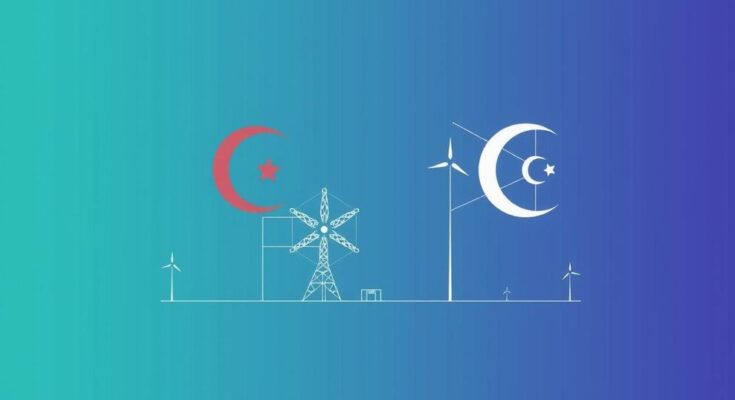The COP29 conference in Baku exhibited a strong Russian presence focused on gas cooperation with Azerbaijan, sidelining climate goals in favor of energy deals. Azerbaijani President Ilham Aliyev emphasized fossil fuels’ significance while criticizing Western hypocrisy, marking a shift toward closer ties with Russia. The discussions included energy transit agreements amidst ongoing tensions with the West, raising concerns about the actual commitment to combating climate change.
The recent UN Climate Change Conference, COP29, held in Baku, showcased a significant Russian presence with a delegation of 900 members, a notable increase compared to prior years. The forum primarily served as a platform for Russia and Azerbaijan to bolster their gas and oil collaboration, aiming to sidestep sanctions rather than prioritizing climate issues. Azerbaijani President Ilham Aliyev characterized fossil fuels as a “gift from God,” highlighting the contentious relationship with Western nations while demonstrating a growing alliance with Moscow. This summit also featured negotiations involving energy transit agreements, raising eyebrows regarding genuine commitments to climate action amidst ongoing fossil fuel dependency.
During COP29, Azerbaijan showcased its intention to deepen ties with Russia, contrasting starkly with rising tensions with Western nations. A notable incident was the absence of France’s climate minister as a response to allegations made by Aliyev against French President Emmanuel Macron. The summit has further illustrated Azerbaijan’s pivot from Western alliances towards cements its relations with Russia, particularly in the energy sector. Discussions surrounding Russian gas transport and potential deals underscored this shift, even as critical views toward Russia’s climate policies gained traction, labeling its participation as hypocritical.
Despite ostensibly promoting climate action, Russia’s delegation included numerous representatives from the fossil fuel industry, suggesting that their efforts may be more about advancing domestic energy interests than committing to a sustainable future. In particular, the summit’s discussions hint at a complex interplay between energy politics, climate rhetoric, and regional dynamics, raising questions about the efficacy of COP29 in promoting substantial climate action. Furthermore, the repression of environmental activism in Azerbaijan signals systemic challenges in addressing fossil fuel dependency in both Russia and Azerbaijan, complicating any genuine progress in mitigating climate change.
The backdrop of COP29 was marked by heightened geopolitical tensions, particularly following Russia’s invasion of Ukraine in February 2022. Azerbaijan’s role as a critical energy supplier has become increasingly prominent, especially amid diminished energy relations between the EU and Russia. The summit’s proceedings were largely overshadowed by Russia’s gas deals and Azerbaijan’s positioning as a mediator in energy negotiations, reflecting broader strategies employed by both nations to subvert Western sanctions. Additionally, environmental concerns remained sidelined as both countries emphasized their fossil fuel ties, raising serious questions about the integrity of climate commitments made at such international fora.
In conclusion, COP29 exemplified the growing alliance between Russia and Azerbaijan, showcasing how energy interests took precedence over genuine climate action. The summit highlighted both nations’ intentions to reinforce their fossil fuel cooperation while circumventing the implications of international sanctions. Moreover, Azerbaijan’s shift away from Western partnerships towards Moscow raises concerns about the future of climate commitments in a context dominated by energy politics, signaling a troubling trend for future climate negotiations.
Original Source: theins.ru




